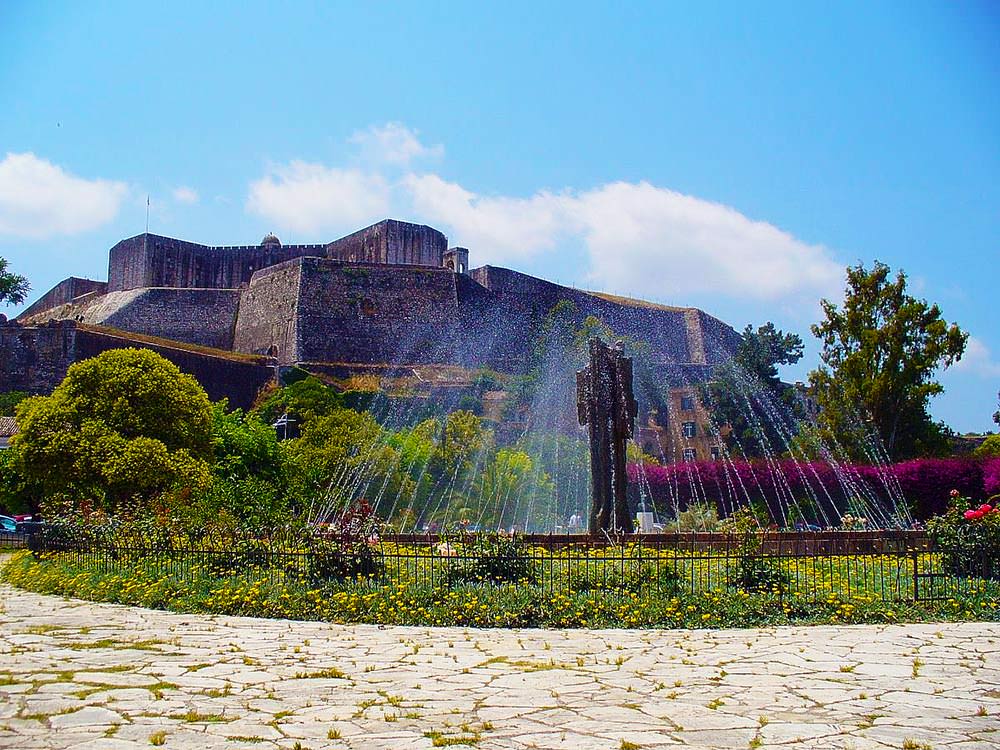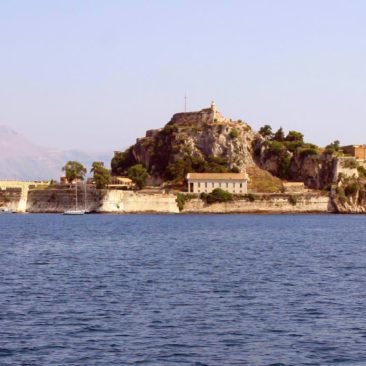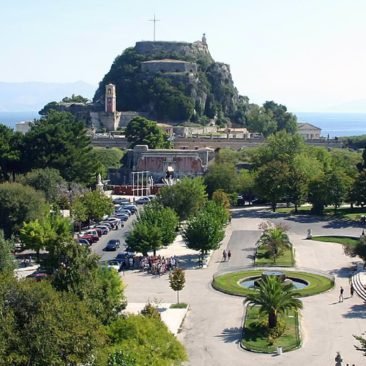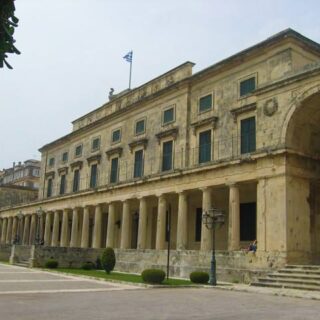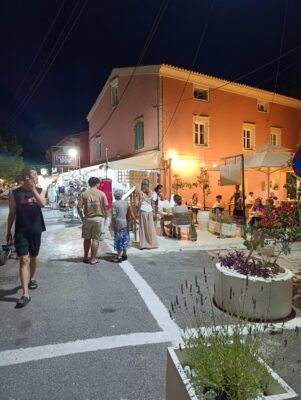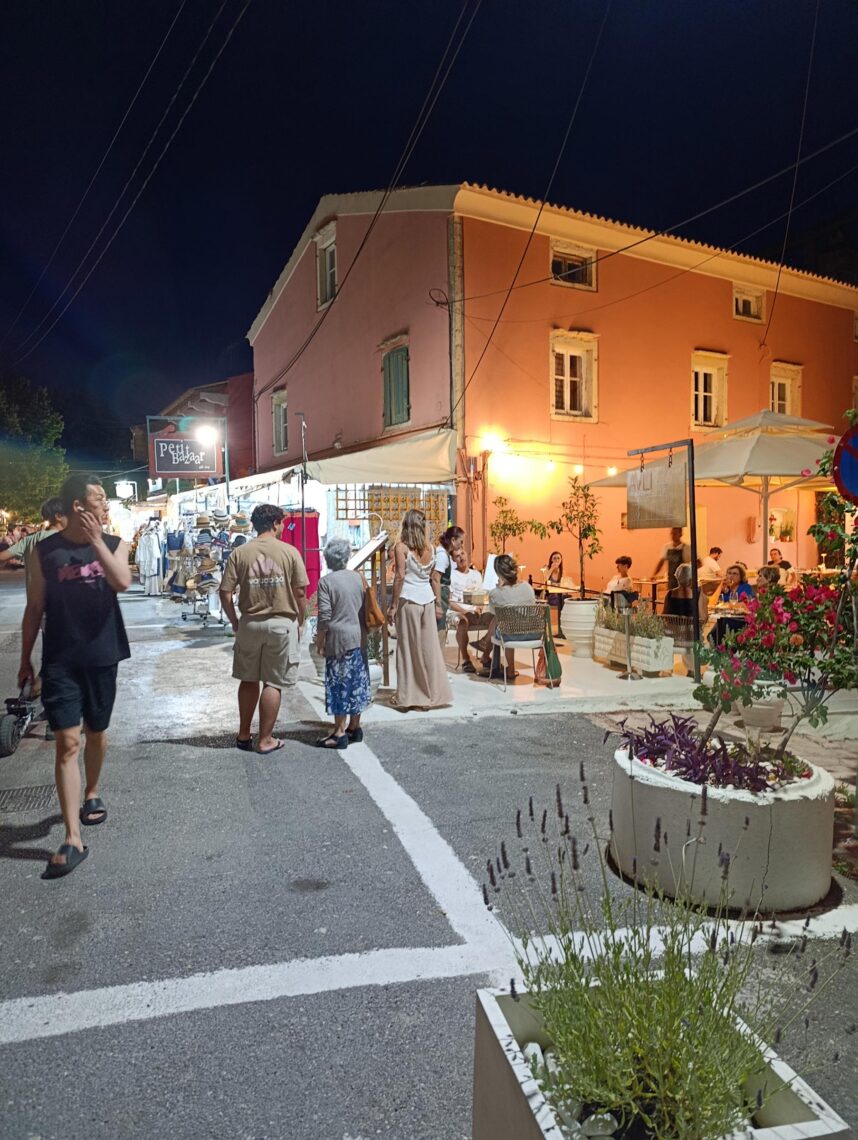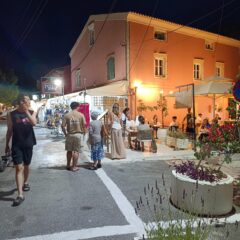The New Fortress
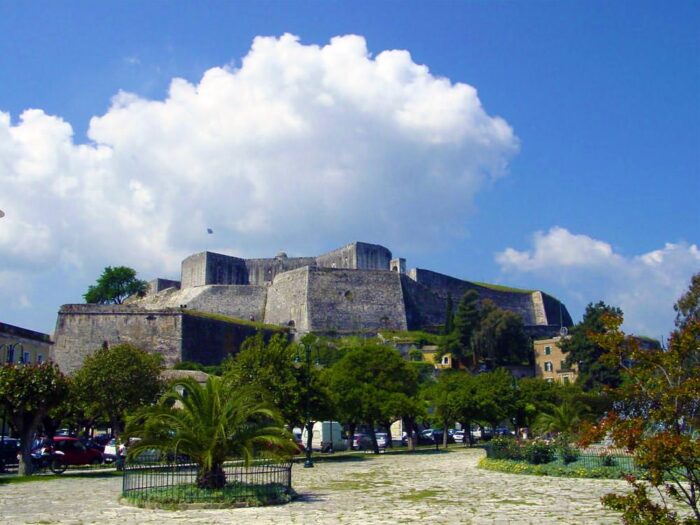

The New Fortress in Corfu is another example of the exceptional capacity of Venetians in fortification, and an architectural marvel of art built by the Venetians and with the physical labor of the inhabitants from 1576 until 1645.
Today it stands as one of the most important monuments of Corfu, as you can find out in this historical sites map.
Venetians, due to the permanent threat of the Turks, felt that it was necessary to complete the fortifications of the city, which meanwhile had been expanded far beyond the existing fortress.
The construction of the new fortress
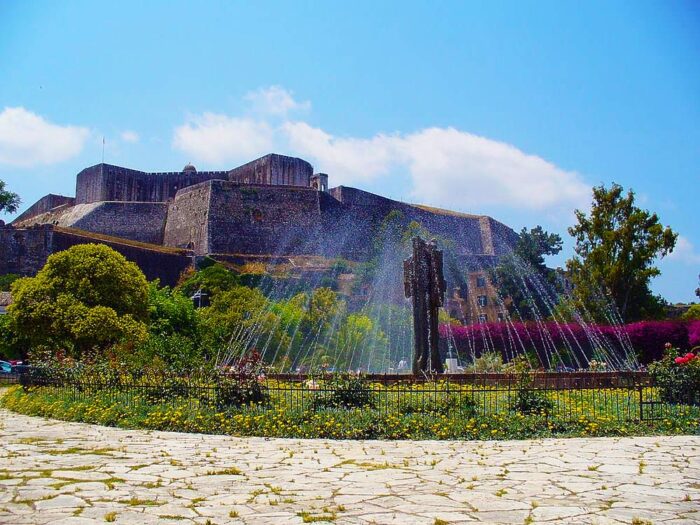

The fortress, known as the New Fortress or Fortezza Nuova in Italian, was built between 1576 and 1645 on the rocky hill of San Marcos overlooking the old town of Corfu. The fortress extended south with walls and ramparts reaching the sea at Garitsa Bay. Corfu is now all within the walls; it was then that Corfu took the name Kastropolis.
The New Fortress was designed and built by the Venetian military engineer Ferrante Vitelli. Vitelli was a renowned architect and engineer who worked extensively on fortifications throughout the Venetian Republic, including the construction of the walls of Nicosia in Cyprus and the fortifications of the Dalmatian coast.
The fortress was designed to be a modern and formidable defensive structure, capable of withstanding attacks by both land and sea. It featured a complex system of walls, bastions, and moats, as well as barracks, powder magazines, and other facilities for soldiers and officers.
Vitelli’s design for the New Fortress was highly innovative and influential, and it served as a model for many other fortifications built during the 16th and 17th centuries. Today, the New Fortress is one of the most impressive and well-preserved examples of Renaissance military architecture in Greece, and it is a popular tourist attraction and historical landmark in Corfu.
The construction of the fortress was a response to the increasing threat of Ottoman attacks on the island. It was designed to strengthen the island’s defenses and provide a secure stronghold for the Venetian garrison.


The fortress was built in a pentagonal shape and included a series of walls, bastions, and gates, as well as a moat and a drawbridge. The main entrance was located on the eastern side of the fortress, and it was protected by a massive gate known as the Porta of Spilia.
Despite its formidable defenses, the New Fortress was eventually captured by the French in 1797 and later by the British in 1815. NOTE: In fact, we shouldn’t consider these as captures since the collapse of the Venetian Republic had preceded it after its defeats by the French, and the two fortresses of Corfu were essentially left without a garrison, waiting for the French army.
Today, it remains one of the most impressive examples of Venetian military architecture in the Mediterranean and is a popular tourist attraction in Corfu.
To become a fortress, except for the exhaustive work of the residents, 2,000 houses in particular, where now stands the vast Esplanade square, had to be demolished.
It has been said that materials taken from the ruins of the ancient city of Corfu in Paleopolis were also used, and this was a disaster, to say the least.
The reason for the house’s demolition was not only to find building materials but primarily defensive; the Venetians wanted to create a large buffer zone between the Old Fortress and the city, something that would help better their defense plans. At the same time, this place could be used as the perfect field for military exercises.
That is why today, Corfu has perhaps the largest square in Europe, the famous Esplanade.
Inside the New Fortress of Corfu


The New Fortress of Corfu, or Fortezza Nuova, is an impressive complex of buildings and fortifications, which is well worth a visit for those interested in history, architecture, or military strategy.
Once inside the fortress, visitors can explore several different areas, including:
- The Parade Ground – This large, open space was originally used for military drills and exercises. Today, it is a popular spot for picnics and relaxation, with stunning views over the city and the sea.
- The Barracks – Located in the northern part of the fortress, the barracks were used to house soldiers and officers. They have been restored and now house the Museum of Ceramic Art.
- The Powder Magazine – This building was used to store gunpowder and other explosives. Visitors can still see the iron bars on the windows that were used to prevent theft or sabotage.
- The Bastions – The fortress has several bastions, which were designed to protect the walls and provide additional firing positions for the defenders. Visitors can climb up to the top of the Bastions for panoramic views over the city and the sea.
- The Naval Station of Corfu is also hosted in a new building inside the fort.
- The lion of Saint Markos is at the entrance of the new castle, which was the emblem of Venice.
English left marks on the New Fortress
During their domination of the island, the British left their mark on the new fortress as well, by building a barracks next to the main gate and another one on the second level. And the temple of Panagia Spilaiotissa was added by them around 1850.
Overall, the New Fortress of Corfu is a fascinating and historically significant site that offers visitors a glimpse into the island’s rich and complex past.
Exhibitions and events in Corfu’s New Fortress


While it is primarily a fortress and tourist attraction, Corfu’s new fortress also hosts a number of exhibitions and events throughout the year.
- The Museum of Ceramic Art – This museum is located in the barracks of the New Fortress and showcases a collection of ceramics from the 19th and 20th centuries. The pieces on display range from traditional Greek pottery to contemporary works by local and international artists.
- Concerts and Performances – The New Fortress occasionally hosts concerts and other cultural events, particularly during the summer months. These events may take place in the fortress courtyard or one of the smaller buildings within the complex.
- Art Exhibitions – The New Fortress has several exhibition spaces that are occasionally used to showcase contemporary art, photography, and other cultural exhibits. These exhibits may feature works by local or international artists, and they can be a great way to learn more about Corfu’s artistic community.
- Historical Reenactments – From time to time, the New Fortress may host historical reenactments or demonstrations of traditional crafts and skills. These events can be a fun and educational way to experience the fortress’s history and learn more about life in Corfu centuries ago.
Overall, the New Fortress of Corfu is a dynamic and multi-faceted attraction that offers visitors a range of cultural and educational experiences throughout the year.
Tickets to enter the fortress


Tickets to enter the New Fortress of Corfu can be purchased at the entrance gate of the fortress. There is a ticket booth on the staircase of Solomos Street where visitors can buy their tickets before entering the site. The ticket price may vary depending on the season and any special events or exhibitions that may be taking place at the time of your visit.
Alternatively, visitors can also purchase tickets online in advance through the official website of the Ministry of Culture and Sports of Greece or other authorized ticket vendors. This can be a convenient option to save time and avoid queuing at the ticket booth.
It is important to note that visitors may need to show proof of vaccination or a negative COVID-19 test result to enter the fortress, as part of the health and safety measures in place due to the ongoing pandemic. It is recommended to check the current regulations and requirements before planning a visit to the New Fortress of Corfu
In Brief
Today, the New Fortress is one of the most popular tourist attractions in Corfu, and visitors can explore its many halls, tunnels, and galleries to learn more about its history and architecture. The fortress is also home to several museums and exhibitions, including the Museum of Ceramic Art, which showcases a collection of ceramics from the 19th and 20th centuries.
In addition to its historical and cultural significance, the New Fortress is also a popular spot for outdoor activities such as hiking, picnicking, and taking in the breathtaking views of Corfu and the surrounding area. Whether you’re a history buff or just looking for a unique and memorable experience in Corfu, the New Fortress is a must-see attraction that should not be missed.


